
Some co-workers have been harassing me because of my religion. My employer says it isn't their problem. Is that true?
You’re harassed at work because of your religion. You’re passed over for a job because of your disability. You’re paid less than your co-workers for similar work, based on your sex. These are examples of discrimination. You’ve been treated badly or unfairly based on parts of your identity protected under human rights law. Learn your rights and options if someone discriminates against you in the workplace.
What you should know
There are provincial and federal human rights laws that protect workers from discrimination in the workplace.
The BC Human Rights Code applies to most workplaces in the province.
But federal human rights law applies to some workplaces, including those in federally-regulated industries (such as airlines and telecommunications providers).
The guidance below focuses on your rights under BC’s human rights law. However, many of the same points apply to workers covered by the federal law.
Find out what law applies
The Canadian Human Rights Commission explains what human rights law applies depending on your situation.
“I’d been in the same position for three years, and was ready for a step up. I applied for a supervisor position. My employer told me that more responsibility would be ‘too much for a woman to handle.’ I was shocked. It made me realize discrimination is still a real problem in some workplaces.”
– Jasmine, Richmond, BC

BC human rights law protects you from discrimination at work. An employer must not discriminate against you based on these parts of your identity:
your race, colour, ancestry, or where you’re from
your Indigenous identity
your sex, sexual orientation, or gender identity or expression
your age
any physical or mental disability
your marital status
your family status (for example, if you have kids)
your religion or political belief
any criminal convictions that are unrelated to the job
The law calls these protected characteristics. You can’t be treated badly or unfairly in the workplace based on a protected characteristic. If you are, you’ve experienced discrimination.
This protection applies in all aspects of employment
The protection against discrimination applies in all aspects of your employment. It applies in hiring, firing, wages, benefits, hours, and other terms and conditions of work. This means an employer cannot factor a protected characteristic into:
not hiring you
not promoting you
firing you
discriminating against you in some other way in your job
The protected characteristic does not need to be the only or main reason for a decision or action by an employer. It’s discrimination if the characteristic is a factor in your treatment. For example, if you weren’t hired in part because of your religion or sex, that’s discrimination.
Reducing the gender pay gap
As of November 2023, BC employers above a certain size must prepare an annual pay transparency report. The report must show the breakdown in pay for workers based on gender. This requirement will be rolled out over several years. For details, see the provincial government's website.
The protection includes the workplace environment
Employers must provide a discrimination-free workplace. They may be liable for discrimination, including harassment, by their workers in the workplace.
The protection extends to union membership
Under this law, a trade union or occupational association can’t discriminate against you, either. For example, a union can’t point to any of the protected characteristics to stop you from joining the union, to expel or suspend you, or otherwise discriminate against you.
“Interviewing for a courier job, I was asked if I had Canadian work experience. I’m pretty sure they didn’t hire me because I said no. But I had the required driver’s licence, and relevant experience from elsewhere. I learned later I had a strong claim for discrimination, as Canadian experience wasn’t relevant and necessary for the job.”
– Prem, Vancouver, BC

Discrimination at work can take many forms. It can be direct, where someone is treated badly or unfairly in the workplace because of a protected characteristic. For example:
an employer doesn’t hire a person for a job because they’re transgender
co-workers harass a worker over their race, religion, sex or other protected characteristic (harassment is conduct a reasonable person would consider objectionable or unwelcome)
an employer requires a worker with a drug addiction to undergo drug testing (unless the employer can justify the testing)
an employer fires a worker because she’s pregnant
an employer forces a worker to retire because of their age
Discrimination can take many forms
Discrimination can also be less direct. This is trickier to spot. Sometimes a policy or practice that applies to everyone can have a discriminatory effect on some people.
For example, say you follow a religion that requires you to wear a head covering. Your employer has a rule prohibiting workers from wearing anything on their heads. The rule applies to everyone at work, so in that way it seems fair. But the rule has a negative impact on you in relation to a protected characteristic — your religion. Therefore the rule discriminates against you.
Sometimes the systems you interact with can work to discriminate against you. This is called systemic discrimination. It includes rules, policies, attitudes and structures that privilege some groups and disadvantage others.
If you’re disadvantaged at work because of a protected characteristic, your employer has a duty to accommodate you.
For example, a person with a disability may not be able to perform a certain part of their job because of their disability. Or a job requirement to work on a certain day may hurt someone whose religion prevents them from working on that day. In these cases, the employer must make adjustments to accommodate these differences. They must take reasonable steps to remove the harm and support the worker to do the job. For more on this, see our guidance on the employer’s duty to accommodate.
An employer has one main legal defence against a worker’s claim of workplace discrimination. An employer can try to justify a rule or practice that appears to be discriminatory by showing it is based on a bona fide occupational requirement.
To use this defence, an employer must show that:
the rule or practice has a purpose legitimately connected to the performance of the job, and
they acted in good faith, believing the rule or practice was necessary to achieve the purpose, and
the needs of the person discriminated against cannot be accommodated without the employer experiencing undue hardship.
For example, say you’re a construction worker. Your job requires a lot of heavy lifting. You have an accident and severely injure your shoulder. For construction work, having shoulder mobility is a bona fide occupational requirement. Your employer would likely be justified in refusing to let you work until your shoulder heals.
If someone discriminates against you in the workplace, you have options.
Make a human rights complaint
You can make a human rights complaint to the BC Human Rights Tribunal. The tribunal deals with complaints under the Human Rights Code. It operates like a court but is less formal. It can provide a mediator to help people resolve the complaint themselves. If that’s not possible, the tribunal holds a hearing to decide if there was discrimination.
If you decide to bring a human rights complaint, you must file it with the tribunal within one year of when the discrimination happened. We explain the steps in our guidance on making a human rights complaint.
If the tribunal decides your complaint is justified, it can order the employer or other person to stop discriminating. It can order that you get your job back, or be given the right to compete for a job. The tribunal can also award you money for lost income and for injury to your dignity, feelings, and self-respect.
Make an employment standards complaint
If your employer didn’t follow the Employment Standards Act, you can make an employment standards complaint. You make the complaint to the Employment Standards Branch, the government office that administers the Act. We offer guidance on the steps involved. This type of complaint must be filed within six months of your last day of work.
Note that the Employment Standards Act covers some situations that can also bring the Human Rights Code into play. For example, under the Employment Standards Act, an employer cannot fire you because you are pregnant. That would also be discrimination under the Human Rights Code. Be aware that if you make an employment standards complaint, you may be barred from starting a human rights claim. And if you bring an employment standards complaint, you'll only be able to claim whatever severance pay your employer owes you. You won't receive extra compensation for being discriminated against. For these reasons, it's a good idea to get legal advice before choosing this option.
Sue for wrongful dismissal
If you lose your job because of discrimination, you may decide to sue in court for wrongful dismissal. However, the court can only award you damages for your lost wages; it can't award you any extra damages to compensate you for the discrimination. That means you're likely to collect more if you file a human rights complaint, because you can get damages for your lost wages as well as the discrimination.
Note a wrongful dismissal lawsuit must be brought within two years of when you were dismissed from your job.
If you belong to a union
If you belong to a union, one option is to ask the union to file a grievance about the discrimination. There may be timelines for filing a grievance in your collective agreement. Speak to your union representative to get more information as soon as you experience discrimination.
If you pursue more than one option
If you complain to the Human Rights Tribunal and also pursue another option (by filing a union grievance, making an employment standards complaint, or suing the employer for wrongful dismissal), the tribunal can wait until the other process is finished before dealing with your complaint. However, the tribunal may find that the other process has adequately dealt with your claim of discrimination, and then decide to dismiss your complaint. It’s a good idea to seek legal advice on your options. There is free and low-cost legal help available.
Work out the problem
If you think you’ve experienced discrimination, the first step is to get your thoughts together. Make detailed notes of what happened. Do this as soon as you can.
Make sure you note:
What happened: describe the way you were treated unfairly.
Why you think this happened: the protected characteristic you think was a factor in the unfair treatment.
The impact: details of how this experience has had a negative effect on your life.
Who else is involved: as in, who can back up your story.
If the discrimination results from a policy or practice, write down when you first noticed the problem. Get a copy of any document that contains the policy or rule at issue.
Sometimes it can be hard to figure out whether you were discriminated against. Your answers to these three questions can help you decide:
Is a protected characteristic in play? (See above, under what you should know, for the personal characteristics protected from discrimination.)
Was I treated in a way that had a negative impact on me?
Was the protected characteristic one of the factors in how I was treated?
You’ll need to show how the answer is ‘yes’ to all three of these questions in order to show you were discriminated against. (The protected characteristic doesn’t need to be the only or most important factor in how you were treated. It just needs to be a partial factor.)
It’s enough to show that the facts support a “reasonable inference” of discrimination. For example, if a worker who is Black is disciplined more harshly than other workers whose conduct is similar, that may be the basis for a reasonable inference of discrimination based on their colour or race.
Consider getting legal advice
At this point, it can be very helpful to speak to a legal professional. They can help explain your rights and your options. The BC Human Rights Clinic offers a range of free legal services, including summary advice. (If you are Indigenous, you can ask to speak directly to an Indigenous legal advocate.) The Lawyer Referral Service can help connect you with a lawyer for a free 15-minute consult. For more options, see below under who can help.
If you think you've been discriminated against in the workplace, a key step is raising the issue with your employer.
Find out if there’s a procedure in your workplace for dealing with human rights complaints. Start with the human resources department, if there is one.
When you meet with your employer, explain how the discriminatory treatment has affected you. Ask for any adjustments that would remove the harm and support you to do the job.
If discussing the problem doesn’t help, put your concerns forward to your employer in writing.
Tips for engaging with your employer
Approaching your employer with a workplace issue can be stressful. We offer tips for talking with your boss and on writing a letter to your employer.
As described above under what you should know if someone discriminates against you, there are options to take more formal steps. These can include bringing a human rights complaint, an employment standards complaint, a grievance (if you’re in a union), and a lawsuit for wrongful dismissal. It’s important to get advice at this stage on what option is best in your situation.
If you decide to make a human rights complaint, this is made to the BC Human Rights Tribunal. (Unless your employer is federally regulated, in which case you make your complaint here.)
Generally, you have one year from the time the conduct occurred to make a complaint. We have guidance on the steps involved. If you’re successful, the tribunal can make an order to compensate you. They can also order other remedies.
Get help with filing a complaint
The Human Rights Clinic may be able to help you file a complaint with the tribunal. The clinic may also be able to assist you at a hearing.
Common questions
In a job interview, you can be asked about protected characteristics as long as the questions aren’t discriminatory. This will depend on the context. For example, you may be asked, as a casual icebreaker, where you’re from. But this question can’t be part of the formal interview.
Yes. Under BC law, employers must not pay a man more than a woman for similar, or substantially similar, work. The reverse of this is also true: employers must not pay a woman more than a man for similar or substantially similar work. Whether work is similar, or substantially similar, depends on a number of things, including the skill, effort, and responsibility a job requires.
Employers can pay different wages to different people based on seniority, merit, and productivity.
Yes. Under BC law, employers can’t advertise in connection with a job a preference, specification or limitation based on a protected characteristic. The exception is if the preference, specification or limitation is based on a bona fide occupational requirement. (See above, under what you should know.)
Generally, a job ad should describe the job and any skills or training necessary. It shouldn’t describe a type of person.
A related point: an employment agency can’t refuse to refer you for employment based on a protected characteristic.
No. The Human Rights Code protects all people 19 and over from discrimination because of their age. Among other things, this means you cannot be forced to retire because of your age. The choice to retire is yours. However, your employer is allowed to encourage you to retire by offering you a reward or bonus to do so.
Some jobs may set age limits because of the duties involved or because of safety issues — for example, a job that requires an exceptional amount of manual labour. In that case, the age limit may be justified. This is called a bona fide occupational requirement. For more on this, see above, under what you should know.
No. The Human Rights Code does not let people agree to give up their rights. An employer cannot ask you to sign a contract that says the employer can discriminate against you.
If a human rights tribunal decides a complaint is justified, it can order the employer or other person to pay money (compensation) to the person bringing the complaint. The tribunal can make an award for lost income (including wages and disability and other benefits) and expenses you incurred as a result of the discrimination, such as medical expenses. As well, the tribunal usually makes an award for injury to dignity, feelings, and self-respect. In most cases, these damages are under $10,000, but some damage awards have been much higher, and in some very serious cases over $100,000. For more, see our coverage on making a human rights complaint.
Who can help
The BC Human Rights Tribunal lists organizations that can help if you feel you’ve been discriminated against. Below are some of the key ones.
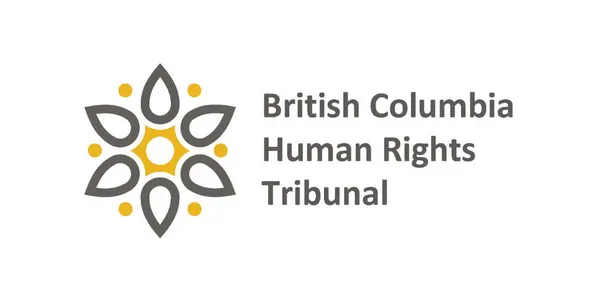
BC Human Rights Tribunal
Receives and resolves discrimination complaints under BC law.
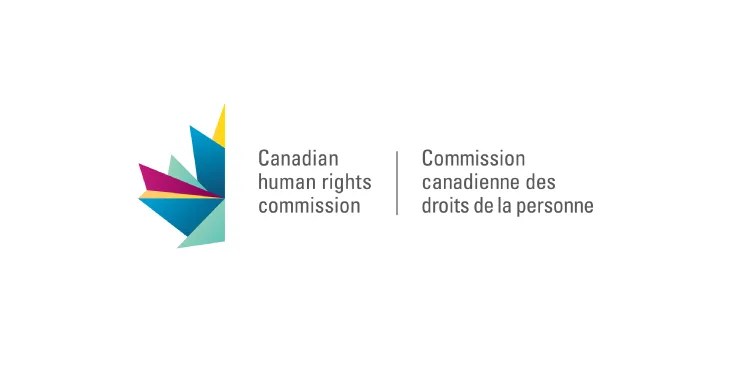
Canadian Human Rights Commission
Deals with discrimination complaints under federal human rights law.
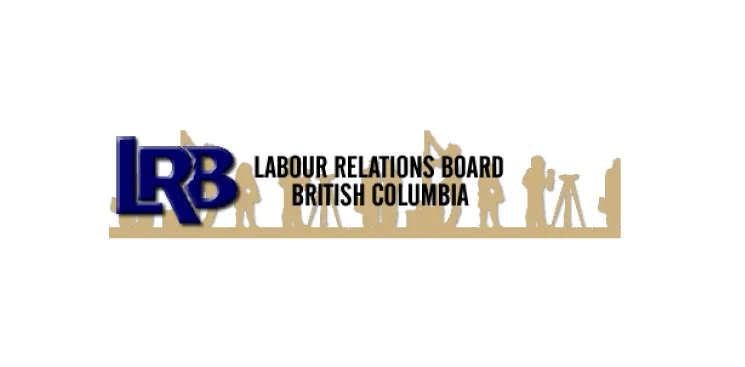
Labour Relations Board
May be able to help if your union has refused to file a grievance for you.
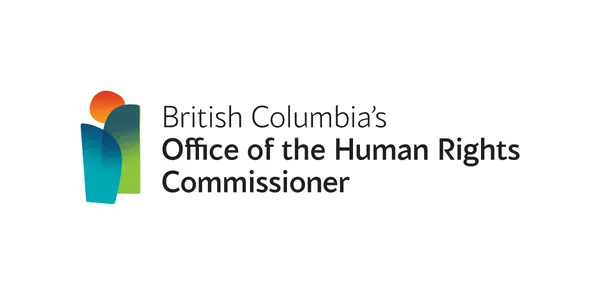
BC’s Office of the Human Rights Commissioner
Works on systemic human rights issues and educates people about human rights in BC.
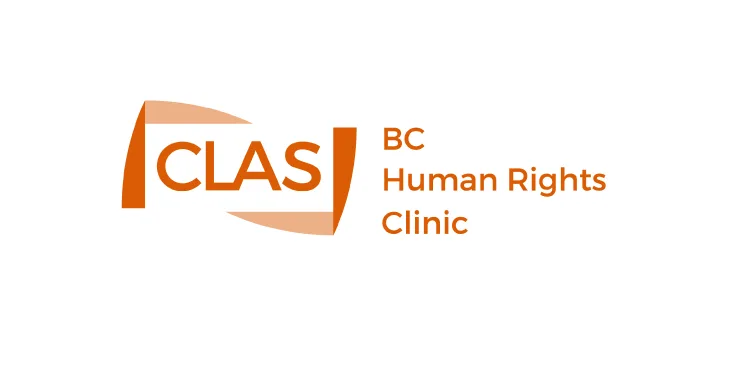
BC Human Rights Clinic
Provides free assistance and representation to those who qualify for help with a discrimination complaint under BC law.

Access Pro Bono's Legal Advice Clinics
Volunteer lawyers provide 30 minutes of free legal advice to people with low or modest income.

Access Pro Bono’s Everyone Legal Clinic
Clinicians provide affordable fixed-fee services on a range of everyday legal problems.

BC Legal Referral Service
Helps you connect with a lawyer, notary or paralegal for a free 15- to 30-minute consult to see if you want to hire them.

BC Legal Directory
Search for a lawyer by community, area of law, or language spoken. From the Canadian Bar Association, BC Branch.

